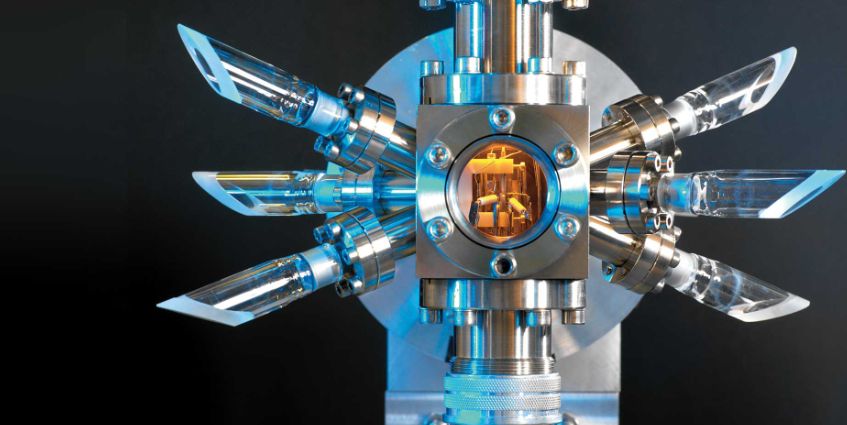
Time and frequency
We provide customers and partners with access to trusted and reliable time, and push the boundaries of timing technologies.
NPL operates the national time scale UTC(NPL) and the UK primary frequency standards, and uses these to contribute to global timekeeping. We also disseminate accurate time and frequency to users across the UK, via services such as the MSF radio time signal, our internet time service, and NPLTime®. Atomic timekeeping underpins technologies that are part of our daily lives, such as mobile phones, the internet and global navigation satellite systems.
We carry out a broad programme of research in time and frequency metrology. We are developing and characterising a new generation of optical atomic clocks which are based on laser-cooled trapped ions and atoms. Although improvements to the stability and accuracy of these clocks are ongoing, they already surpass the performance of existing caesium primary standards. We participate in European collaborations to verify the international consistency of the new clocks. This work is expected to lead to a redefinition of the SI unit of time, the second. Optical atomic clocks have the potential to improve satellite navigation systems and measurements of the Earth's gravity potential, as well as test fundamental physical theories.
We are developing compact and user-friendly frequency standards for applications in navigation, high-speed communications, security and defence. We are also applying the techniques that underpin atomic clocks to develop new quantum sensors such as atomic magnetometers and inertial sensors.
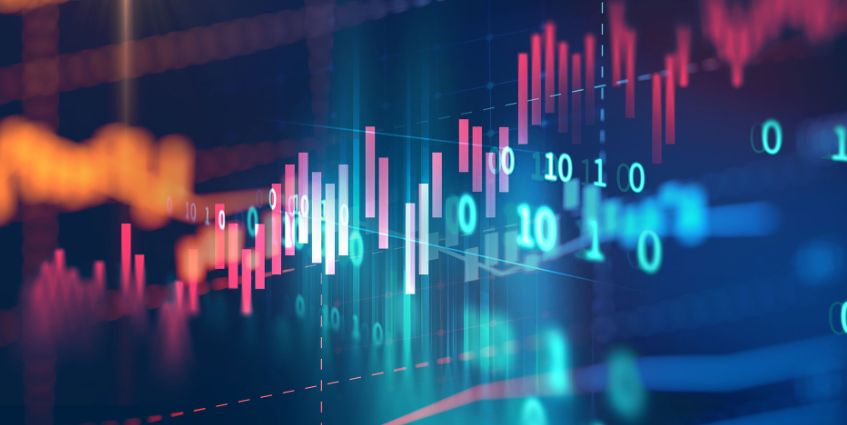
Data science
We embed measurement data into a trusted digital infrastructure that will underpin future traceability chains.
From mapping the spread of disease to monitoring climate change, data holds the key to solving some of the world's biggest challenges. It also promises to deliver improved productivity, helping companies streamline their processes, make improvements and maximise their output.
Dependable decisions rely on understanding the provenance and reliability of data. Our data scientists are working to help organisations analyse and use data with confidence. We are developing data standards and platforms to help collect, connect and comprehend data. We are creating the future tools to analyse datasets, and allow the fusion of disparate datasets to deliver more powerful information. As a major part of our work we evaluate uncertainty to support traceability and reliable decision-making.
This ability to extract meaning from increasingly complex data will shape the future of our society and economy, from the next generation of medical imaging to advanced manufacturing and digital supply chains.
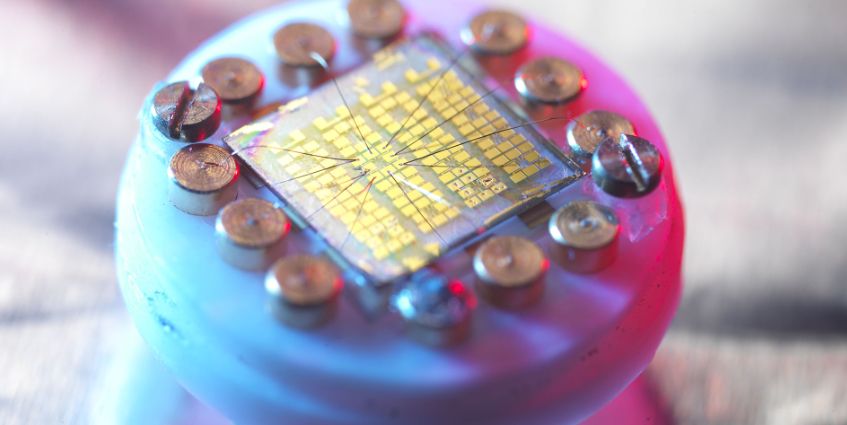
Quantum technologies
We are harnessing quantum science to create next generation devices.
NPL has a rich heritage in exploring, developing and applying quantum science. Our work underpins the redefinition of the worldwide system of measurement units and enables the translation of quantum technologies and materials into practical applications.
As electronic sensors and transistors become smaller and smaller, often consisting of less than 100 atoms, quantum phenomena are more prominent and there is an opportunity to build devices based on quantum principles rather than on traditional science.
We aim to harness these quantum effects to deliver increased information processing power, secure communications, high-precision navigation and earlier diagnosis of diseases. Drawing on decades of experience in quantum, we help to commercialise these technologies, through underpinning standards and extensive test and verification. We work with industry, academic partners and government to accelerate the commercialisation of new products based on quantum systems.
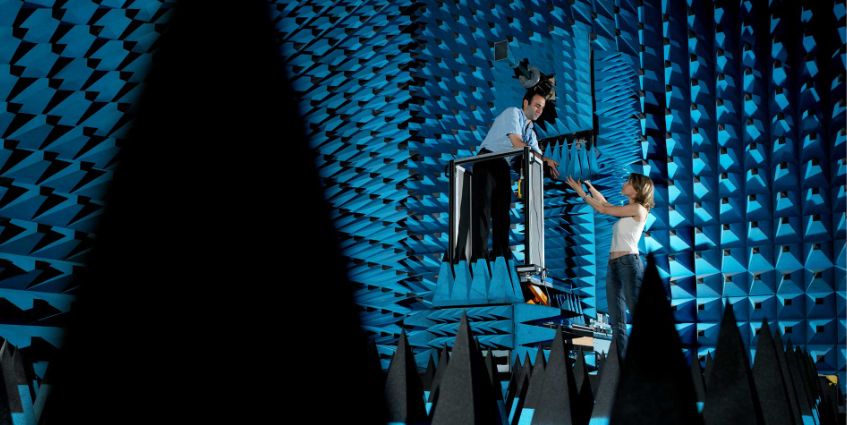
Electromagnetic & Electrochemical Technologies
Emerging applications rely upon advances in electronics and communication devices.
NPL measures electromagnetic quantities across the spectrum, from DC via RF and microwave up to terahertz and optical frequencies to support new technologies, in many sectors. We do this by providing measurements that are extremely accurate and reliable. Our measurements can be traced back to the SI system. We maintain one of the world's most comprehensive capabilities for making electromagnetic measurements across the spectrum.
For example, 5G, smart cities, Industry 4.0, connected autonomous vehicles and precision farming all rely on advances in electronics and communication devices. Highly-accurate and traceable electromagnetic measurements are vital to ensure the performance, interoperability and reliability of these technologies.
Our work helps to translate the latest digital research into commercial products with the potential to benefit industry. We test and validate exciting new technologies to protect consumers and increase the uptake of new innovations.
We support the development of electrochemical energy storage and hydrogen technologies such as high energy density batteries, fuel cells, and electrolysers, helping to build a greener and more sustainable infrastructure to power industry and society in the future. We lead the establishment of international standards for materials selection in the hydrogen, carbon capture, utilisation and storage (CCUS), and nuclear industries, ensuring integrity of net zero energy infrastructure.
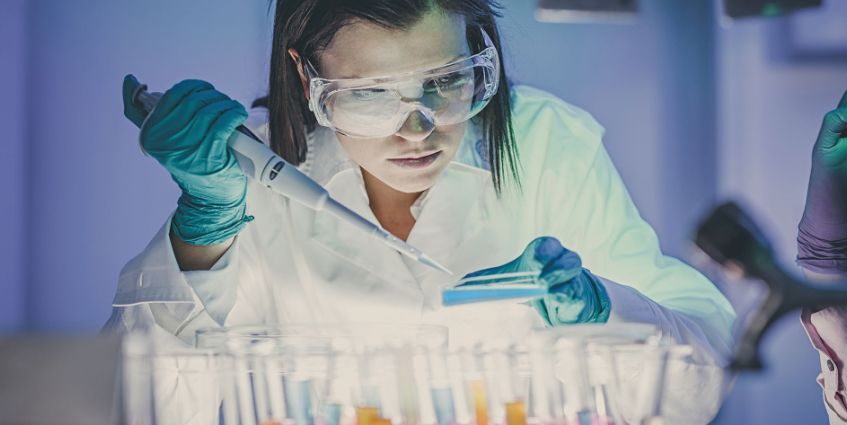
Biosciences
Our research is bringing the future of healthcare closer.
We are now living longer than ever before, but with an ageing population comes challenges. More and more people are living with chronic diseases, and the cost of healthcare is ever rising. In addition, existing treatments are losing their effectiveness, with anti-microbial resistance becoming one of the biggest global threats.
It is only by growing our understanding of biological processes that we can detect diseases better, find new cures and improve quality of life. Yet, medical developments can take decades to make the jump from laboratory to patient.
Our researchers are not only on the forefront of new innovations that promise to deliver new solutions to healthcare challenges, but also play a vital role in providing the underpinning standards and assurance to accelerate their route to market.

Environmental monitoring
Climate change and air quality are amongst the biggest challenges of our time. Policy makers and environmental experts need high quality information to make sound decisions and protect our planet.
We have pioneered techniques to collect data from the world around us, and accurately monitor how it changes over time and in response to different factors. Through robust measurement, we provide confidence in the environmental data which enables effective action to be taken.
We help to inform policy makers working to mitigate the impact of climate change, and support efforts to improve air quality and reduce the risk of pollution on human health.
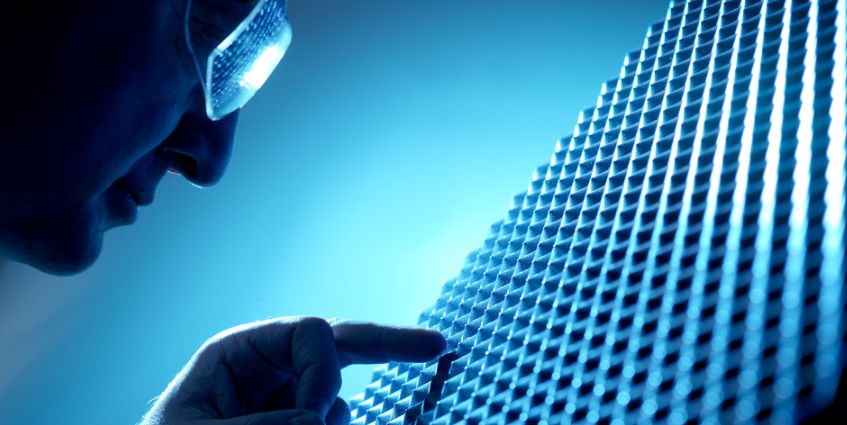
Materials
We help UK industry to use materials effectively for business benefit.
Improving our understanding of the characteristics and behaviours of materials can help industry improve mechanical performance, sustainability and corrosion resistance. Our experts are supporting a broad range of projects helping industry to increase productivity and efficiency, and develop new materials and products.
We work on the development of battery materials to accelerate the uptake of electric cars, test composites for higher performance infrastructure and work to make additive manufacturing more reliable. By ensuring that measurement standards and techniques keep pace with new technology, we can help bring new materials into commercial application faster.
By providing confidence in material performance and identifying opportunities to tailor properties in novel materials, our teams are also helping to unlock a range of engineering and manufacturing opportunities for UK businesses.
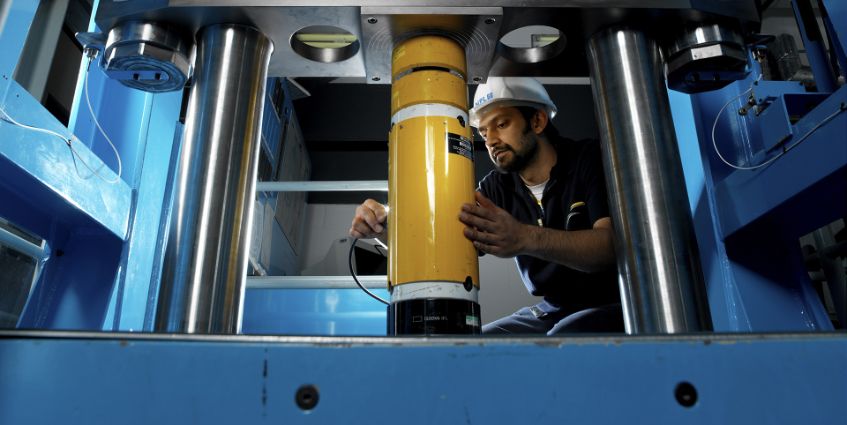
Engineering
Engineering is fundamental to commercialising research and transforming scientific concepts into real products. Measurement is at the heart of engineering, because you need to measure something in order to study and improve it.
We give industry the confidence to innovate by building the skills needed to enhance productivity and provide the measurement standards and techniques that help organisations get it 'right first time'. We provide verification for new technologies, which is vital in securing customer and investor confidence, and getting products to market more quickly.
Our experts help manufacturers be confident in the quality and quantity of their work, whether it's an aerospace engine, a turbine blade or a sub-nanometre part for a hard drive. We ensure compliance with stringent regulations and reliable measurements.